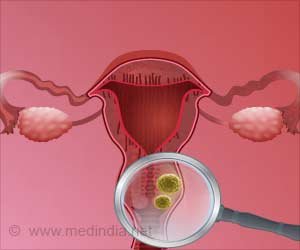Cervical Cancer Screening In Older Women: Necessary Or Unnecessary

According to recommendations and guidelines from the U.S. Preventive Services Task Force, the American Cancer Society, and the American College of Obstetrics and Gynecology, women considered to be of average risk can stop undergoing routine cervical cancer screening once they reach the age of 65 if they have had adequate prior screening.
The decision to end cervical cancer screening for women after age 65 requires a review of past screening results and related medical history. This process can promote cervical cancer prevention and prevent harm and costs from unnecessary tests and procedures.
Advertisement
High Rates of Screening Among Older Women: Matter Of Concern
The new study which is authored by experts from the University of Illinois Chicago, the University of California San Francisco, and the U.S. Centers for Disease Control and Prevention, looked at Medicare claims data from 1999 to 2019 for fee-for-service care for women over the age of 65.
The analysis showed that in 2019 more than 1.3 million women received cervical cancer screening-associated services, such as a Pap test, colposcopy, and other cervical procedures, after age 65. While these services cost more than $83 million, the researchers concluded they were of “unclear clinical appropriateness.”
In this study, about 3% of women aged over 80 years received at least one screening-related service. The Society for General Internal Medicine does not recommend cancer screening be performed in individuals with a life expectancy of fewer than 10 years, which corresponds to age 80 and older in the U.S., so there may well be over-screening.
The study showed that white women were more likely to be screened after age 65 and that Black and Latina’s women were more likely to undergo a diagnostic colposcopy and subsequent cervical procedures.
Overall, the analysis found that the percentage of women over age 65 who received at least one Pap test decreased from 19% (2.9 million women) in 1999 to 9% (1.3 million women) in 2019, a reduction of 55%. Rates of colposcopy and cervical procedures decreased by 43% and 64%, respectively.
While cervical cancer is a more top-of-mind concern for younger women than older women, women over the age of 65 represent about 20% of diagnoses and 36% of deaths due to cervical cancer. We must develop better data to understand how screenings are being used among this population and if screening services are being used appropriately.
Source: Eurekalert
Source link
#Cervical #Cancer #Screening #Older #Women #Unnecessary



